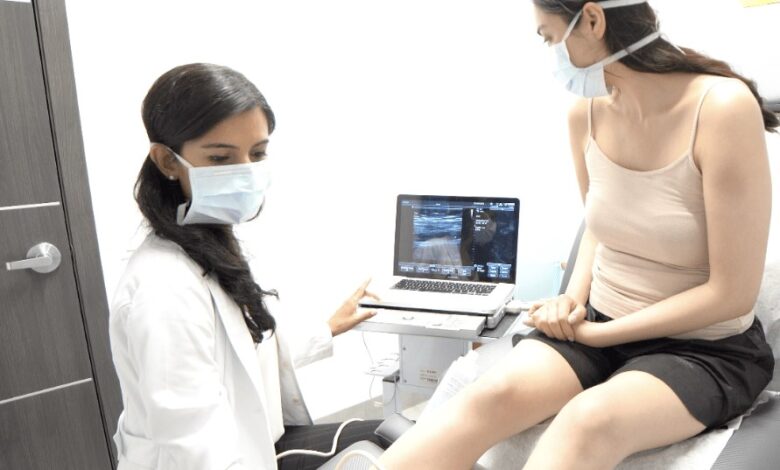What Are the Benefits of Consulting a Varicose Vein Specialist?

Varicose veins are a common issue affecting millions of people around the world. These twisted, swollen veins can cause discomfort, pain, and embarrassment. While many seek relief through over-the-counter treatments or lifestyle changes, consulting a specialist is often the most effective way to address varicose veins. But what is a varicose vein specialist called, and why is it important to consult one? This article will explain the benefits of consulting a vein specialist and offer insights into their role in treating varicose veins.
What is a Varicose Vein Specialist Called?
A varicose vein specialist is commonly referred to as a phlebologist. Phlebology is the branch of medicine that deals with veins and their disorders. However, depending on the severity of the condition and the treatment required, other specialists such as vascular surgeons or interventional radiologists may also play a role in managing varicose veins. Phlebologists are primarily focused on non-surgical treatments, while vascular surgeons often handle more invasive procedures.
Consulting a specialist ensures that patients receive proper care tailored to their condition. These professionals are trained to diagnose and treat all types of venous disorders, including spider veins, chronic venous insufficiency, and varicose veins.
The Advantages of Consulting a Varicose Vein Specialist
Accurate Diagnosis
One of the key advantages of seeing a varicose vein specialist is the ability to receive an accurate diagnosis. Many people may experience leg pain, swelling, or heaviness and mistakenly attribute it to fatigue or other common conditions. A phlebologist can determine whether these symptoms are caused by varicose veins or other venous issues.
Through the use of ultrasound technology, a specialist can evaluate the condition of the veins and identify underlying issues such as faulty valves or blood clots. This is crucial for determining the appropriate treatment plan.
Personalized Treatment Plans
Once a diagnosis has been made, a varicose vein specialist will create a personalized treatment plan based on the patient’s specific condition and medical history. Whether the patient has mild spider veins or severe varicose veins, the treatment approach can vary greatly.
For example, some patients may benefit from sclerotherapy, a non-invasive procedure where a special solution is injected into the veins, causing them to collapse and eventually fade away. Others may require more advanced treatments like endovenous laser ablation or radiofrequency ablation. A specialist will guide patients through these options, ensuring that they receive the most appropriate and effective treatment.
Minimally Invasive Procedures
Many people avoid seeking medical help for varicose veins because they fear painful surgeries or long recovery periods. Fortunately, advances in medical technology have led to minimally invasive procedures that require little to no downtime.
A varicose vein specialist is well-versed in these cutting-edge techniques, which can often be performed in the office with local anesthesia. Procedures like laser therapy or radiofrequency ablation offer effective solutions for vein problems without the need for large incisions or general anesthesia. As a result, patients can return to their daily activities quickly, with minimal discomfort.
Prevention of Future Vein Issues
Addressing varicose veins early can prevent the development of more serious complications. Left untreated, varicose veins can lead to chronic venous insufficiency, skin ulcers, and blood clots, including deep vein thrombosis (DVT), a potentially life-threatening condition.
By consulting a vein specialist, patients not only receive treatment for their current condition but also guidance on how to prevent future issues. This may include lifestyle recommendations, such as exercising, maintaining a healthy weight, and wearing compression stockings to improve circulation.
How to Know If You Should See a Varicose Vein Specialist
Varicose veins may initially appear as a cosmetic concern, but they can cause a wide range of symptoms that affect daily life. Some signs that it may be time to consult a vein specialist include:
- Leg pain or aching: Persistent pain in the legs, especially after standing for long periods, could be a sign of varicose veins.
- Swelling: Swollen legs or ankles may indicate poor circulation caused by faulty veins.
- Itching or skin irritation: Varicose veins can lead to skin irritation and itching, which may be mistaken for a simple skin condition.
- Discoloration or ulcers: Darkened patches of skin or open sores near the ankles are often signs of advanced venous disease.
If any of these symptoms are present, it’s important to seek the help of a phlebologist or vein specialist for an evaluation.
What to Expect During Your Consultation
During the initial consultation, a varicose vein specialist will perform a comprehensive evaluation of your venous health. This usually includes a physical examination and an ultrasound to assess blood flow and check for any abnormalities in the veins.
Based on these findings, the specialist will discuss the best treatment options, explaining the risks and benefits of each approach. Some patients may only need lifestyle modifications, such as elevating their legs or avoiding long periods of standing, while others may require more advanced interventions.
The goal is to provide long-term relief from symptoms and improve overall vascular health.
Cost and Insurance Coverage for Varicose Vein Treatment
Another benefit of consulting a varicose vein specialist is that they are familiar with insurance policies and can help determine whether treatment is covered. Many people are surprised to learn that varicose vein treatments are often considered medically necessary rather than cosmetic, meaning they may be covered by insurance if they cause significant pain or other symptoms.
A vein specialist’s office will typically assist in verifying insurance coverage and providing information on any potential out-of-pocket costs. This ensures that patients can focus on their health rather than worrying about financial barriers to treatment.
Final Thoughts
Varicose veins are more than just a cosmetic issue—they can lead to discomfort, pain, and more serious complications if left untreated. Consulting a varicose vein specialist, also known as a phlebologist, is the best way to receive an accurate diagnosis and effective treatment. With the wide range of minimally invasive procedures available today, there’s no reason to delay seeking help.
By consulting a specialist, patients benefit from personalized treatment plans, cutting-edge techniques, and the peace of mind that comes from knowing their condition is being managed by an expert. Don’t let varicose veins affect your quality of life—take the first step by scheduling a consultation with a vein specialist today.




